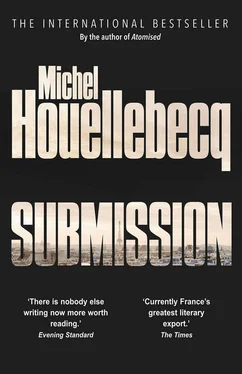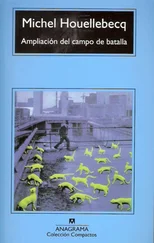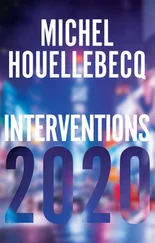‘I see what you mean …’
‘Yes, from a political and military standpoint they’re obviously right. The question is whether they’ve decided to go from talk to action — and if so, in which countries. Every country in Europe is more or less equally hostile to Muslims, but France is a special case because of its military. The French armed forces are still among the strongest in the world, and their strength has been maintained, in the face of budget cuts, by one government after another. That means no uprising can take hold if the government sends in the troops. Which is why there has to be a special strategy for France.’
‘Meaning?’
‘Soldiers have short careers. Right now, we have three hundred and thirty thousand troops in the French armed forces, land, sea and air, if you include the gendarmerie. Annual recruitment is roughly twenty thousand. So within fifteen years or so, we’ll see a complete turnover in military personnel. If young extremists — and they’re almost all young — enlist en masse, it won’t be long before they seize ideological control. That’s always been the strategy of the political wing. But two years ago they faced a challenge from the military wing, who want immediate armed struggle. Now, I think the political wing will stay in power — the military wing won’t attract anyone but juvenile delinquents and gun nuts. But in other countries, who knows? Especially in Scandinavia. Their multiculturalism is even more oppressive than ours here in France, plus you have lots of seasoned extremists, and a negligible military. Yes, if there’s going to be a general uprising any time soon in Europe, look to Norway or Denmark, though Belgium and Holland are also zones of potential instability.’
At two in the morning all was calm, and I had no trouble getting a cab. I complimented Lempereur on his brandy — we had practically finished the bottle. Like everyone else, of course, I’d spent years, decades, hearing people talk about these things. The expression ‘ Après moi le déluge ’ has been attributed alternately to Louis XV or to his mistress Madame de Pompadour. It pretty much summarised my own state of mind, but now, for the first time, I had a troubling thought: What if the deluge came before I died? Obviously, it’s not as if I expected my last years to be happy. There was no reason that I should be spared from grief, illness or suffering. But until now I had always hoped to depart this world without undue violence.
Was he being alarmist? I didn’t think he was, unfortunately. The kid struck me as a deep thinker. The next day I looked on YouTube, but there was nothing about Place de Clichy. All I could find was one video, and it was scary enough, though there was nothing actually violent about it: fifteen guys in black, hooded, armed with machine guns, marching slowly in V-formation through what looked like the estates in Argenteuil. This was no mobile-phone video: the resolution was very high, and someone had added a slow-motion effect. Static, imposing, shot from below, the clip could only have been meant as proof that boots were on the ground, that the territory was under control. If there was an ethnic conflict, I’d automatically be lumped together with the whites, and for the first time, as I went out to buy groceries, I was grateful to the Chinese for having always kept the neighbourhood free of blacks or Arabs — of pretty much anyone who wasn’t Chinese, apart from a few Vietnamese.
Still, it would be prudent to come up with an evacuation plan, in case things took a sudden turn for the worse. My father lived in a chalet in the Massif des Écrins. He had just moved in with someone (at least, I’d just found out about her). My mother was living out her depression in Nevers, alone except for her bulldog. These two baby boomers had always been completely self-centred, and I had no reason to think they’d willingly take me in. Occasionally I found myself wondering whether I’d ever see my parents again before they died, but the answer was always negative, and I didn’t think even a civil war could bring us together. They’d find some pretext for refusing to let me stay with them. They never had any shortage of pretexts. I’d had a handful of friends over the years, kind of, but we weren’t really in touch. There was Alice. I supposed I could call Alice a friend. All in all, now that Myriam and I had broken up, I was very much alone.
I’d always loved election night. I’d go so far as to say it’s my favourite TV show, after the World Cup finals. Obviously there was less suspense in elections, since, according to their peculiar narrative structure, you knew from the first minutes how they would end, but the wide range of actors (the political scientists, the pundits, the crowds of supporters cheering or in tears at their party headquarters … and the politicians, in the heat of the moment, with their thoughtful or passionate declarations) and the general excitement of the participants really gave you the feeling, so rare, so precious, so telegenic, that history was coming to you live.
To avoid a repeat of the last debate, which I’d spent dealing with my microwave, I bought taramasalata, hummus, blini and salmon roe. The day before, I’d stocked the fridge with two bottles of Rully. As soon as David Pujadas went on the air at 7.50, I knew this election night would be top-notch and that I was about to experience some exceptional TV. Pujadas was always very professional, of course, but there was no mistaking the gleam in his eye: the results, which he already knew, and which in ten minutes he’d be allowed to divulge, had come as a shock. The French political landscape was about to be turned upside down.
‘Tonight will go down in history,’ he began, as they reported the first returns. The National Front was way ahead, with 34.1 per cent of the vote. That part was more or less expected. It was what the polls had said all month — Marine Le Pen had gained only a few points in the last weeks of the campaign. But behind her, the Socialists had 21.8 per cent and the Muslim Brotherhood 21.7 per cent — they were neck and neck. With such a slim margin, they could easily switch positions, and probably would several times before the night was over: so far only the polling stations in Paris and the other big cities had reported. With 12.1 per cent of the vote, the conservative Union for a Popular Movement was clearly out of the running.
The UMP candidate, Jean-François Copé, didn’t appear on-screen until 9.50. Haggard, badly shaven, tie askew, he looked even more than usual as if he’d just been through an interrogation. With pained humility, he agreed that the conservatives had suffered a setback, a serious setback, and that he took full responsibility, though he didn’t go so far as to say he was retiring from politics, like Lionel Jospin in 2002. As for which candidate the UMP would support in the run-off, he said only that the executive bureau of the party would meet in a week to make their determination.
At ten o’clock neither the Socialists nor the Muslim Brotherhood had pulled ahead. The latest results showed them in a dead heat. This state of uncertainty spared the Socialist candidate from having to give what would have been a difficult speech. Was it really all over for the two parties that had dominated French political life since the birth of the Fifth Republic? The prospect was so amazing that, as the commentators blew by, you could see they all secretly wanted it to happen — even David Pujadas, whom no one suspected of being especially friendly to Islam, and who was said to be friends with Manuel Valls. Christophe Barbier, flashing around his trademark red scarf, was without question the star pundit of the night: he appeared on one channel after another so fast that he seemed to enjoy the gift of ubiquity, and kept the scarf trick going until a very late hour, easily eclipsing the ashen Renaud Dély, whose Observateur had failed to predict the upset, and even Yves Thréard, of Le Figaro , who usually put up a better fight.
Читать дальше







